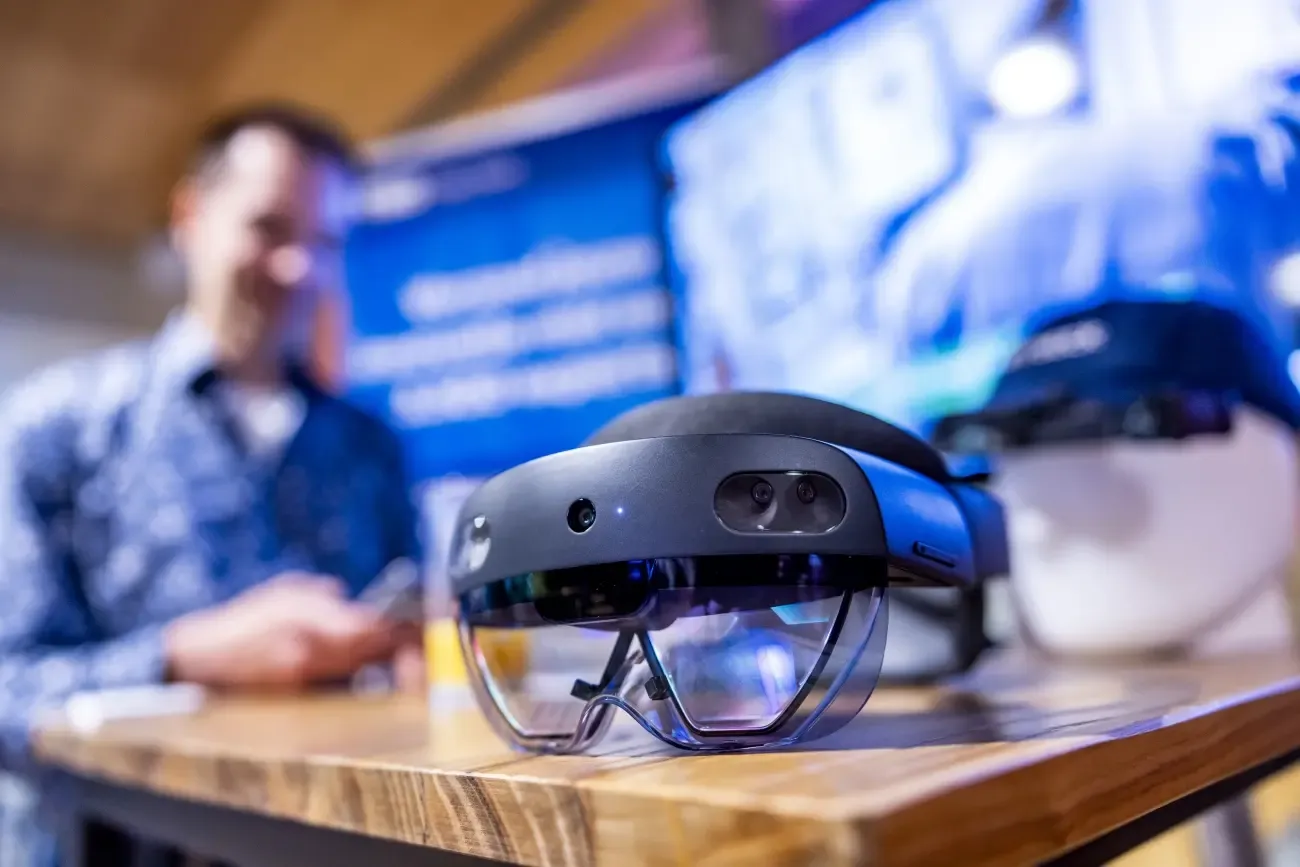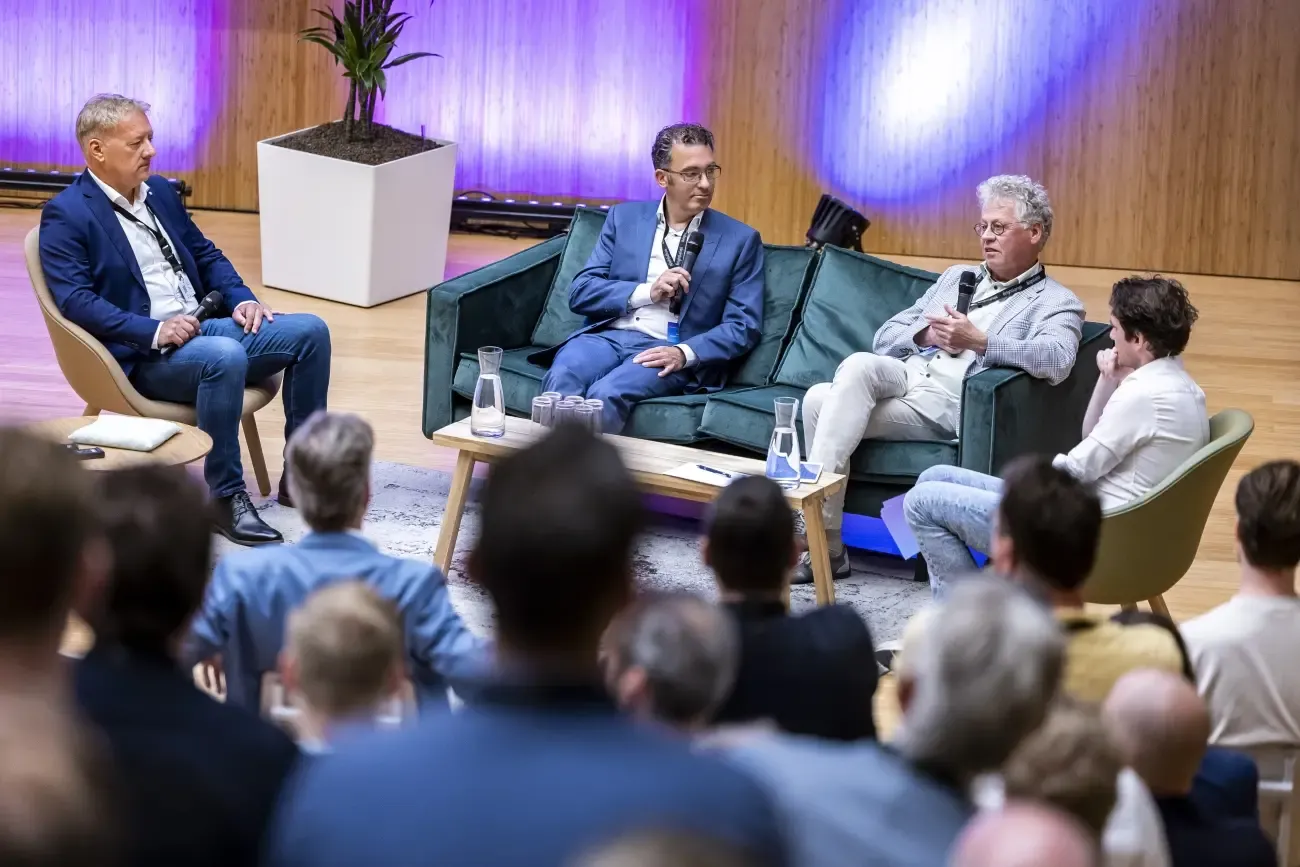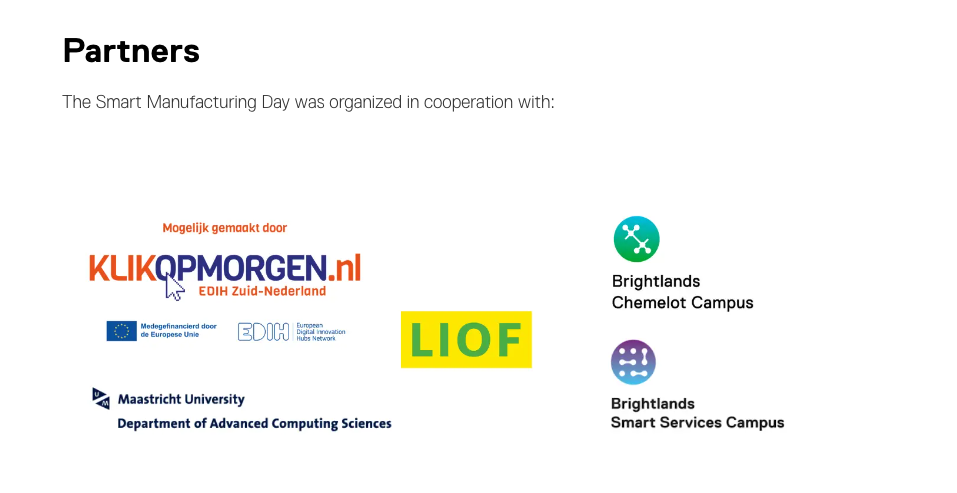On Monday, June 24, the Brightlands Smart Services Campus was dedicated to the concept of smart manufacturing. The central theme addressed the question of how the process and manufacturing industry responds to digital transformation. A look back at a forward-looking day on digital and human-centric innovation.
The process and manufacturing industry is facing unprecedented challenges. Reducing CO2 emissions, managing energy consumption and job market shortages are just a few of these challenges. Digital technology can play an important part in solving these problems: How can the sector take advantage of the opportunities that artificial intelligence can offer? How can the industry optimize production processes and strengthen its competitive position? How can this industry attract and retain talent, implement advanced technologies and create a culture of innovation?

Lookback
Each and every one of these are hot topics that will be discussed in detail this Monday, June 24 during the Smart Manufacturing Day, organized by the Brightlands Smart Services Campus in collaboration with many partners. More than 130 process and manufacturing industry professionals will explore the latest digital innovations for the process and manufacturing industry together with startups, members of the industry and experts from the knowledge institutes. In addition to addressing the latest developments and inspiring practical examples, various high-tech solutions will also be presented at the special demonstration area at the campus. Examples include TNO’s “hololens” for supporting maintenance work, Quick Response Manufacturing solutions from Zuyd University of Applied Sciences, and ICB-WE with digital twin technology software.

The Smart Manufacturing Day kicked off with a panel discussion moderated by guest chairman Tom Jessen. Seated at the table were Jos Smeets, (Global AME Director Inalfa Roof Systems in Venray), Frank Thuijsman (Professor Strategic Optimization and Data Science, Maastricht University – Department of Advanced Computing Sciences) and Walter Pijls (CEO Brightlands Smart Services Campus) who engaged in a debate on the applications for technology and digitalization in Smart Manufacturing. This was followed by twelve short pitches by companies and organizations represented at the demonstration area.
CEO Walter Pijls
“At the Brightlands Smart Services Campus, we stimulate innovation through collaboration. One of the initiatives is a leading group of Limburg processing and manufacturing companies that are committed to the development and application of AI models. I welcome even more parties from this sector to join this effort. By collectively adopting AI solutions faster, we will be in a position to make our region a frontrunner in this field,” said Walter Pijls, CEO to clarify.
This was followed by a presentation given by Paul Grefen, professor at Technical University Eindhoven and principal architect at Eviden. He explained the principle of Customer Outcome Management, placing this in the context of more traditional models for value streams in the manufacturing industry. Next up was Daniel Kappes, operations director of Maastricht-based Thomas Regout International, who offered insight into the “factory of the future” model composed of eight segments where technical and social innovation come together. “You create a more inclusive and healthy work environment that puts people first,” reads one of Kappes’ theses. Thomas Regout International is part of a leading group of Limburg companies active in the process and manufacturing industry.
Daniel Kappes
“Limburg is far along in the development and application of AI in Smart Manufacturing. Our region holds a leading position in the field and, if you ask me, should be much more proud of this accomplishment. Right now, the leading group is currently working on a very advanced Digital Twin and Digital Shadow. I learned the importance of these through my experience with digitalization and AI, so my advice is to get started and start thinking in terms of solutions. It’s often a protected process of course, but sometimes, certain aspects can suddenly move very quickly,” Kappes continued.
Twelve companies and organizations from Limburg gave demonstrations during the breaks. After this, Guido van Gageldonk, technalist and program manager for the BOM regional development company, dazzled the audience with a monologue on the application of GenAI within the manufacturing industry. Finally, CTO of Demcon Data Driven Solutions Marnix Zoutenbier presented imaginative practical examples on the applications of algorithms and data for both large and small organizations. One of these involved the value of developing algorithms based on synthetic data in diagnostics to detect military vehicles and for the optical inspection of photonic chips. Former lieutenant general of the Royal Netherlands Army Mart de Kruif concluded the meeting with his vision on how knowledge, conceptual thinking and leadership can reinforce each other and create opportunities.
